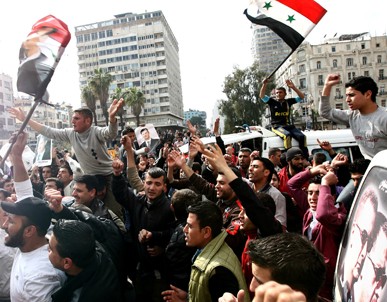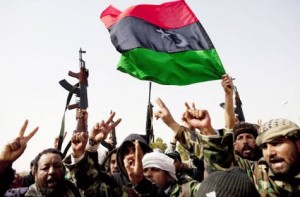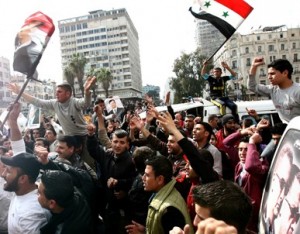
One year later: Looking back at intervention in Libya
 As the Syrian conflict continues to unfold, supporters and critics for immediate US support have dug in on both sides. Last year’s intervention in Libya is being used as reasoning on both sides of the argument.
As the Syrian conflict continues to unfold, supporters and critics for immediate US support have dug in on both sides. Last year’s intervention in Libya is being used as reasoning on both sides of the argument.
Supporters of direct US support in Syria cite the NATO-led air support for the Libyan rebels as a success in stopping further atrocities in the country. Direct US support would benefit the Syrian rebel cause. However, opponents of direct US support cite the Libyan conflict as reasoning, albeit for a different outcome. Opponents state that the Libyan conflict is different from Syria because direct intervention lacks current support from the UN Security Council and that there is no single or unified Syrian opposition group. Also, success may be harder to achieve given the difficult geographic limitations surrounding Syria that were not present in Libya and the continued Russian anti-aircraft arms sales to the Syrian regime.
However, a fair amount of the analysis that uses Libya as a barometer for Syrian intervention has taken an inaccurate look at the chaotic situation in Libya. Until recently, assessments of the Libyan intervention stated it as a success because Gaddafi was defeated and the country was now in the hands of the people. Unfortunately, the situation is slowly deteriorating.
 This week, The New Republic published a piece by Ephraim Halevy, the head of the Center for Strategic and Policy Studies at the Hebrew University of Jerusalem. Mr. Halevy, a former director of Israel’s intelligence agency Mossad, presents a sobering assessment of the Libyan intervention and discusses about how it limits the international community’s options in both Syria and Iran. Mr. Halevy writes:
This week, The New Republic published a piece by Ephraim Halevy, the head of the Center for Strategic and Policy Studies at the Hebrew University of Jerusalem. Mr. Halevy, a former director of Israel’s intelligence agency Mossad, presents a sobering assessment of the Libyan intervention and discusses about how it limits the international community’s options in both Syria and Iran. Mr. Halevy writes:
Just a year has gone by since the Arab Spring first hit Libya, and celebrations of Libya’s liberation from its despicable dictator aren’t exactly making headlines. Indeed, has there been much to glorify? There is little semblance of a central government, and intertribal fighting shows no signs of abatement.
He also says that the “Libyan experience” has severely affected the chances of creating international coalitions to deal with the Syrian conflict and the growing Iranian nuclear threat. Mr. Halevy goes even further to state that the intervention in Libya may have impacted any future non-proliferation diplomacy in the region. Mr Halvey also addresses those who advocated intervention as a human rights imperative. He notes that
Of course, there will be those who will ask about the moral and human aspects of the Libyan revolution. Indeed, what about them? How much has the lot of the Libyan people improved by the substitution of a dictator for havoc, lawlessness, and the collapse of governance??
The international community appears to be leaning towards some form of military action as hopes of diplomacy with the Assad regime appear to be fading. Intervention may be the correct decision for aiding Syria but the current chaos in Libya rightfully continues to give the US and the international community pause in its decision making.






[…] Klum: One year later: Looking back at intervention in Libya […]
[…] Klum: One year later: Looking back at intervention in Libya […]
… [Trackback]…
[…] Read More here: americansecurityproject.org/blog/2012/one-year-later-looking-back-at-intervention-in-libya/ […]…